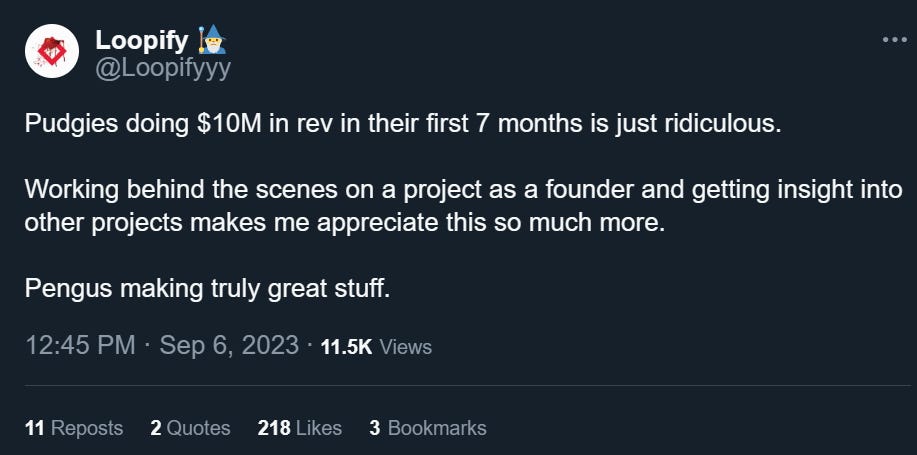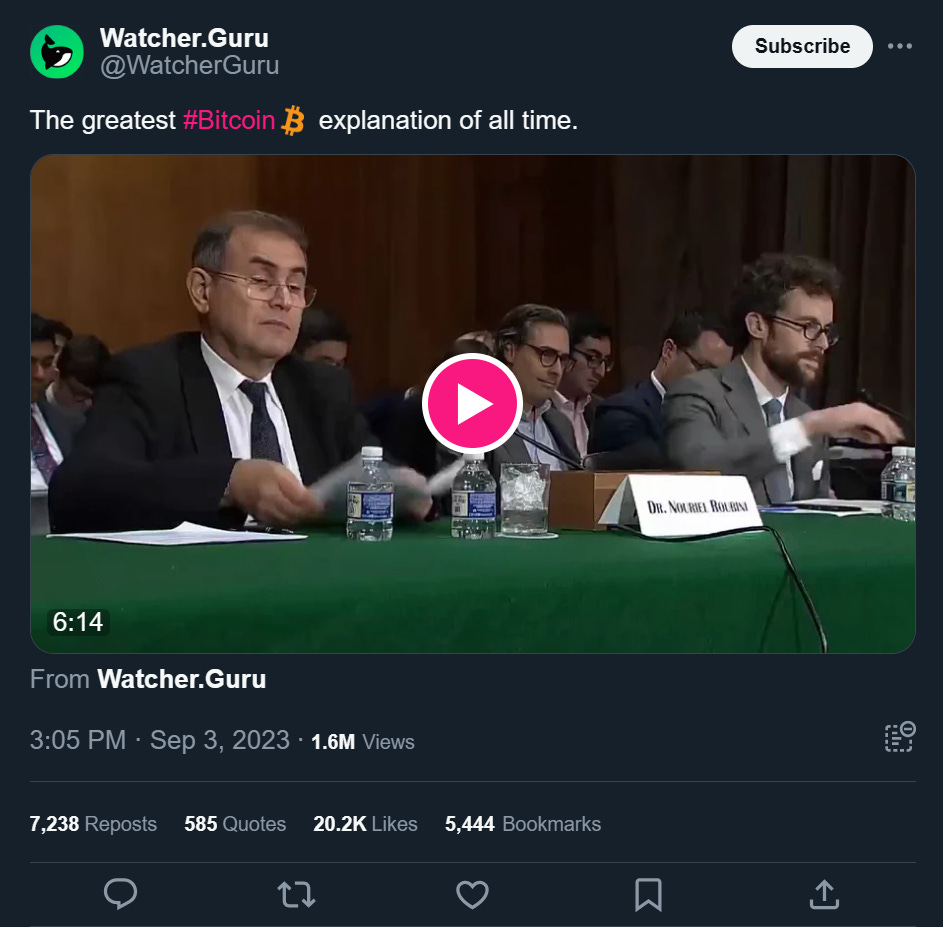Ahri's unqualified thoughts #33
Random articles, quotes, videos, musings. Easy to consume content: 1 quote, 1 tweet/storm and 1 article/video.
In today's edition, we're featuring a tweet mentioning Pudgy Penguin’s success, and a video explaining what Bitcoin is and isn’t.
1 quotable thingy to look brilliant in your next young socialites’ meet-up
“Education's purpose is to replace an empty mind with an open one”. Malcolm Forbes
1 tweet/storm to keep you up to date
During Korea Blockchain Week, Pudgy Penguin's CEO, Luca Netz, announced that PP is on track to achieve $10 million in toy sales within its first seven months.
PP stands out as a remarkable success story in the NFT arena and broader brand landscape. Kudos to them for uniquely distinguishing themselves amidst a sea of other NFT projects and their very often unmet promises, or straight-up rugs.
1 article/video to discover something new, maybe
In this 6-minute video, Dr. Van Valkenburgh (his Twitter account is here) does an excellent job of explaining what Bitcoin is and isn’t.
TLDR:
Bitcoin is the pioneering blockchain network with global reach. With just a computer and internet access, it lets you send value to anyone, anywhere in the world. What sets it apart is its position as the first global digital payment system that doesn't require trusting an intermediary.
Before Bitcoin, our primary mode of universal payment was cash. However, currency is mostly for face-to-face exchanges. While the public payment infrastructure has been improving, it still isn't optimal for international transfers. Typically, we need to rely on private banks or financial institutions. The challenge here is that these payment-controlling entities are immensely powerful. They not only want to maintain their grip over the entire payment process to ensure their profit and oversight but their dominance can also pose risks in case of systemic failures. Bitcoin offers an alternative – it's non-discriminatory and globally accessible.
Many equate the transformative potential of Bitcoin to that of the Internet, suggesting it could revolutionize public infrastructure. My stance leans more towards "wait and see." Perhaps it's because of my cynicism, and the fact that our current monetary system has been ingrained for centuries. Overturning or modifying such a deeply entrenched system, especially when vast sums are involved, is bound to take time as incentives are clearly not aligned.





